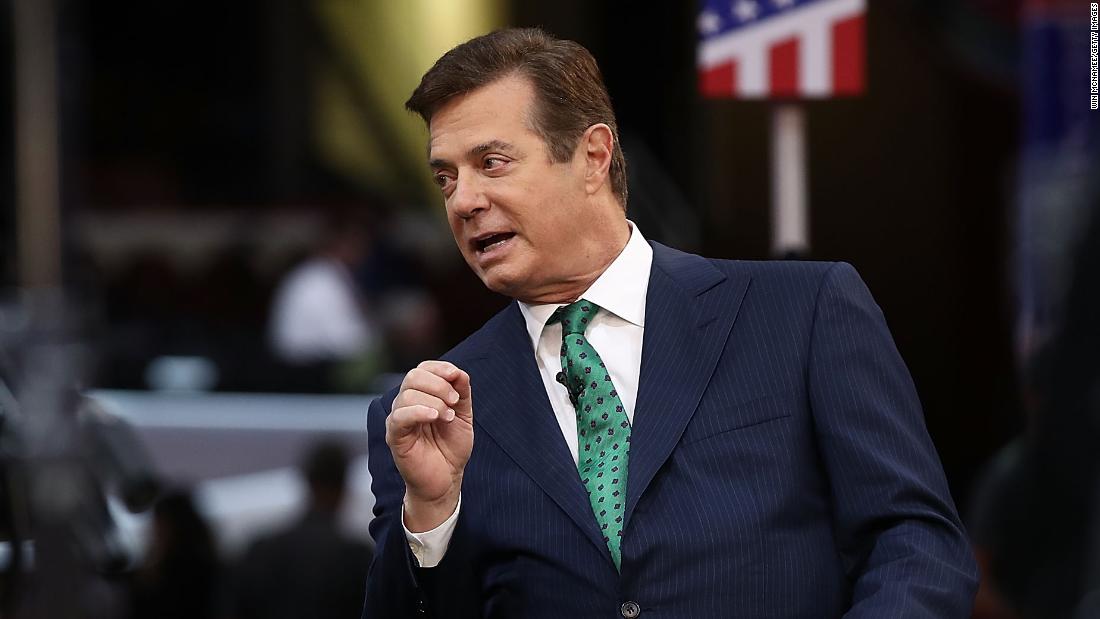
One by one, potential jurors carrying purple pieces of paper with court information, backpacks, messenger bags and books filed into the long pews in the large ceremonial courtroom on the courthouse's top floor.
A jury in Alexandria, Virginia, found Manafort guilty two weeks ago of eight federal banking and tax crimes related to his Ukrainian lobbying income. Manafort is charged separately in Washington federal court with seven counts of conspiracy, foreign lobbying violations and witness tampering. He has pleaded not guilty.
The DC residents were told by the judge from now on they may not speak to anyone about the case or read news coverage about it, and they were asked to fill out 50-question forms probing their personal experiences, which ask them about their backgrounds professionally, with law enforcement and with the case.
The questionnaires are meant to help weed out jurors who know too much about the case before the trial begins or could not weigh the case impartially.
Many of the potential jurors wore dress shirts and other business casual clothing. The jury pool's age ranged broadly. Most of the potential jurors are white.
The three prosecutors who will try the case, Andrew Weissmann, Jeannie Rhee and Greg Andres from special counsel Robert Mueller's office, and two of Manafort's defense attorneys, Thomas Zehnle and Kevin Downing, introduced themselves to the assembled mass. Three FBI agents supporting the prosecutors also attended the gathering.
Manafort was not there.
The potential jurors had no reaction when Judge Amy Berman Jackson told them they were brought to court for Manafort's trial.
She said they would not be sequestered—meaning if chosen for the case the members of the jury will be able to go home from court on weeknights and on the weekends.
Speaking into a microphone from the long dais at the front of the room, Berman Jackson described emphatically and for several minutes how the jurors must avoid speaking about and reading about the case.
"That rule goes into effect right now," she said.
She spoke about how they especially must avoid online discussion of Manafort, on social media, RSS feeds and other tools. "If you don't understand a word of what I said, you don't have to do anything," she said to laughter from the potential jurors.
Berman Jackson has said previously that seating a jury may take time because of the possibility that many potential jurors are familiar with Manafort, given his work on the Trump campaign and news coverage about his criminal cases.
Jurors will be questioned individually beginning September 17 until 12 jurors plus three alternates are chosen. In order to seat a jury, the pool of about 120 from Tuesday may be narrowed down to as few as 33 people.
The trial's opening statements are set for September 24, and the proceedings are expected then to last about three weeks.
The attorneys on the case will meet with Berman Jackson again on Wednesday to discuss some parameters for the upcoming trial. Manafort is not expected to attend that hearing.
Bagikan Berita Ini














0 Response to "Jury selection begins for second Paul Manafort trial"
Post a Comment